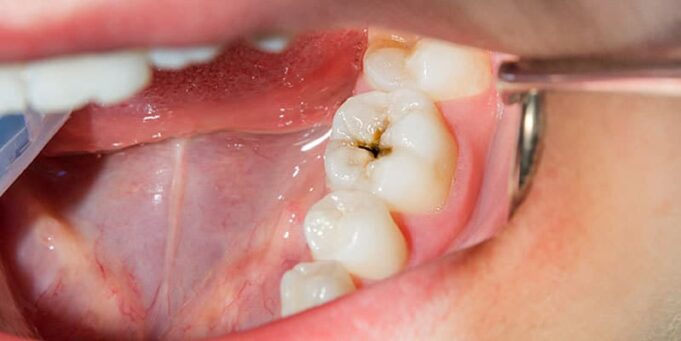Introduction
Dental cavities, also known as dental caries, are a common oral health issue that affects people of all ages. They occur as a result of tooth decay caused by bacteria in the mouth, poor oral hygiene, frequent consumption of sugary foods and drinks, and a lack of fluoride. This article aims to provide a comprehensive guide on how to get rid of dental cavities and address the seriousness of this oral health problem. By understanding the causes, symptoms, and available treatment options, individuals can take proactive steps to prevent and treat cavities, ensuring optimal oral health.
Understanding Dental Cavities
Causes of Dental Cavities
Dental cavities are primarily caused by the interaction between oral bacteria, carbohydrates from food and drinks, and poor oral hygiene practices. Bacteria in the mouth produce acids that attack the tooth enamel, leading to the formation of cavities.
Signs and Symptoms
Common signs of dental cavities include tooth sensitivity, toothache, visible holes or pits in the teeth, discoloration or dark spots on the tooth surface, and discomfort when eating or drinking hot, cold, or sweet substances.
Prevention of Dental Cavities
Practicing Good Oral Hygiene
Regular brushing with fluoride toothpaste, flossing daily, and using mouthwash can help remove plaque and prevent the formation of cavities. Maintaining proper oral hygiene is crucial in preventing dental cavities.
Limiting Sugar Consumption
Reducing the intake of sugary foods and drinks, particularly those with high amounts of added sugars, can significantly lower the risk of developing cavities. Opting for healthier alternatives and practicing moderation is key.
Fluoride Use
Fluoride is a mineral that strengthens tooth enamel and helps prevent tooth decay. Using fluoride toothpaste, mouth rinses, and drinking fluoridated water can enhance the resistance of tooth enamel to acid attacks.
Treatment of Dental Cavities
Professional Dental Care
Seeking professional dental care is essential for treating Dental Cavities. Dentists can provide various treatment options, including:
-
- Dental Fillings: Dentists remove the decayed portion of the tooth and fill the cavity with dental filling material, such as composite resin or amalgam. This restores the tooth’s shape, and function, and prevents further decay.
- Dental Crowns: If the cavity is extensive, a dental crown may be recommended. It involves covering the affected tooth with a custom-made cap to restore its strength and appearance.
- Root Canal Treatment: When the decay reaches the tooth’s pulp or nerve, a root canal procedure may be necessary. It involves removing the infected pulp and sealing the tooth to prevent further infection.
- Tooth Extraction: In severe cases where the tooth is extensively damaged and cannot be saved, extraction may be the only option. Dentists will consider replacement options, such as dental implants or bridges, to restore aesthetics and function.
Prevention of Further Decay
After receiving treatment for dental cavities, it is crucial to adopt preventive measures to avoid future decay. These include maintaining good oral hygiene practices, visiting the dentist regularly for check-ups and cleanings, and following a balanced diet that limits sugary foods and drinks.
The Seriousness of Dental Cavities
While dental cavities may seem like a common and manageable issue, they should not be taken lightly. If left untreated, cavities can progress and lead to more severe problems, including:
Tooth Pain and Infections
Untreated cavities can cause persistent toothache and sensitivity. As the decay progresses, it can reach the tooth’s pulp, leading to infections, abscesses, and severe pain.
Tooth Loss
Extensive tooth decay that goes untreated can result in tooth loss. When the decay reaches the tooth’s roots and supporting structures, it may become irreparable, necessitating extraction.
Conclusion
Dental cavities are a common oral health problem that can be prevented and effectively treated with proper oral hygiene practices, a balanced diet, and regular dental visits. Seeking professional dental care is crucial to address cavities promptly and preventing complications. By understanding the seriousness of dental cavities and taking proactive steps to prevent and treat them, individuals can maintain optimal oral health, preserve their natural teeth, and enjoy a healthy and confident smile. Remember, prevention is key, but early detection and treatment are essential for successful cavity management.












